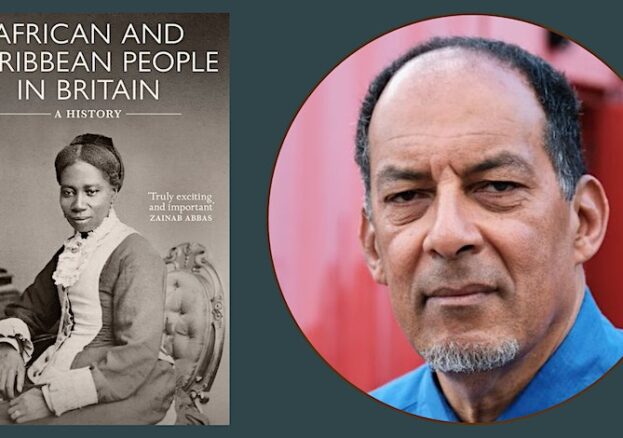
A major new history of Britain that will transform our understanding of this country’s past.
Despite the best efforts of researchers and campaigners, there remains today a steadfast tendency to reduce the history of African and Caribbean people in Britain to a simple story: it is one that begins in 1948 with the arrival of a single ship, the Empire Windrush, and continues mostly apart from a distinct British history, overlapping only on occasion amid grotesque injustice or pioneering protest.
Yet, as acclaimed historian Hakim Adi demonstrates, from the very beginning, from the moment humans first stood on this rainy isle, there have been African and Caribbean men and women set at Britain’s heart. Libyan legionaries patrolled Hadrian’s Wall while Rome’s first ‘African Emperor’ died in York. In Elizabethan England, ‘Black Tudors’ served in the land’s most eminent households while intrepid African explorers helped Sir Francis Drake to circumnavigate the globe. And, as Britain became a major colonial and commercial power, it was African and Caribbean people who led the radical struggle for freedom – a struggle which raged throughout the twentieth century and continues today in Black Lives Matter campaigns.
Charting a course through British history with an unobscured view of the actions of African and Caribbean people, Adi reveals how much our greatest collective achievements – universal suffrage, our victory over fascism, the forging of the NHS – owe to these men and women, and how, in understanding our history in these terms, we are more able to fully understand our present moment.
Professor Hakim Adi trained as an historian focusing on Africa and African history in the twentieth century. His publications “focused on the history of the African Diaspora in Britain, a relatively new subject for academic study and in particular on the political history of West Africans in Britain, and the influence of Communism and Pan-Africanism on anti-colonial activism”. His work sought to demonstrate not only the important links that were established between those on the African continent and its diaspora but also that Africans and those of African descent have played a significant but often neglected role in the history of Britain.
Professor Adi’s 2013 book, Pan-Africanism and Communism, looks at the Communist international and its activities in Africa and amongst the African diaspora from 1919-1939.
As one of the few historians specialising in the history of the African diaspora in Britain, his work has led to many speaking engagements around the world, including China and the USA, as well as media appearances, work with museums and archives and the publication of three history books for children.
His latest book, Pan-Africanism: A History, is the very first survey this 21st century, of the Pan-African movement. Professor Adi covers many of the key political figures of the 20th century, including Du Bois. Garvey, Malcolm X, Kwame Nkrumah and Muammar Gaddafi, as well as Pan-African cultural expression from Negritude to Bob Marley.

